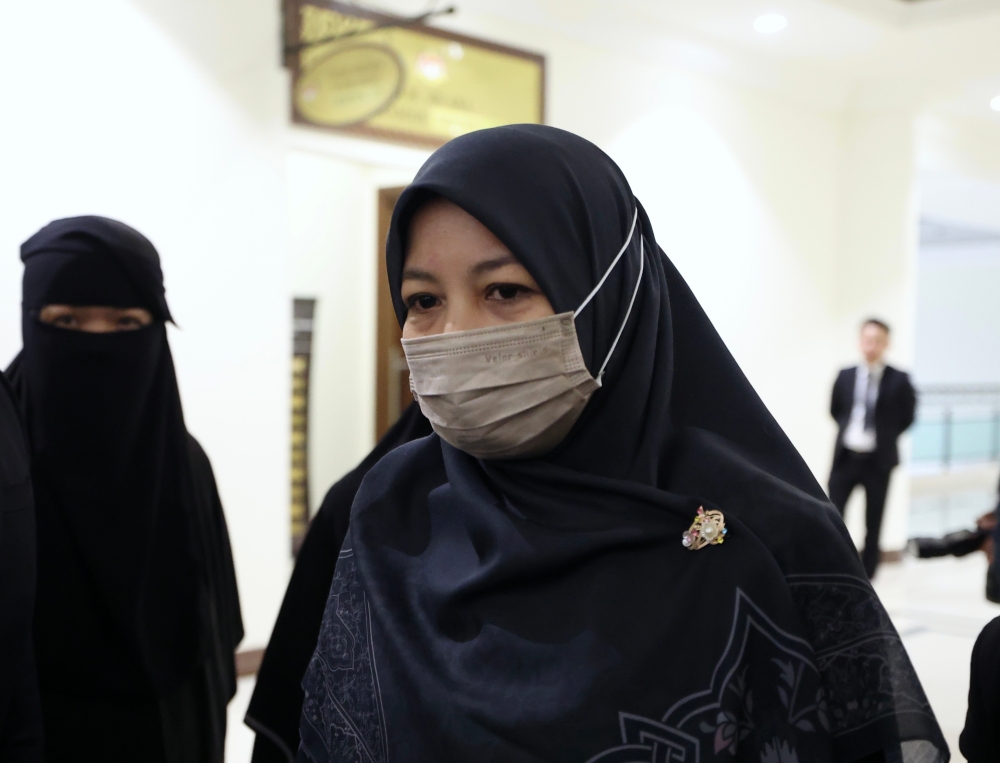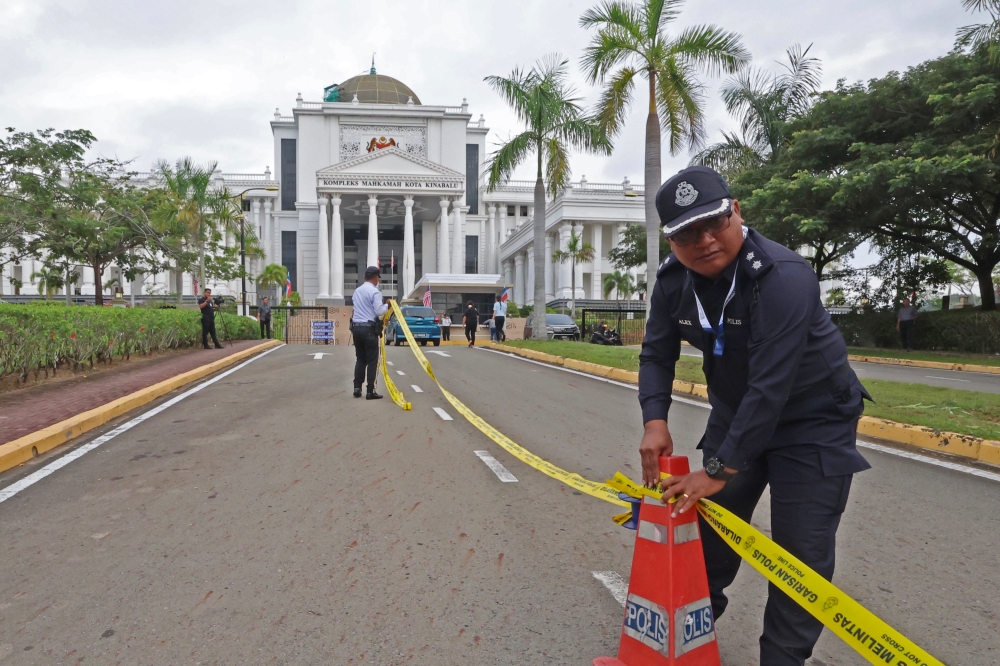
What happens in a Coroner’s Court? Understanding the inquest into Zara Qairina’s death

Demonstrators gather in front of the Ministry of Education building in Putrajaya on August 21, 2025, to protest for “Justice For Zara.” — Picture by Sayuti Zanudin
Wednesday, 03 Sep 2025 7:00 AM MYT
KUALA LUMPUR, Sept 3 — The tragic death of 13-year-old Zara Qairina Mahathir has led to a Coroner's Court inquest, a legal proceeding aimed at determining the cause and circumstances of her death.
Zara Qairina, 13, was found unconscious near her school dormitory in Sabah on July 16 and pronounced dead at Queen Elizabeth Hospital the next day. She is believed to have suffered bullying, neglect, and sexual harassment.
The inquest, which involves a total of 70 witnesses, is scheduled to be heard before Coroner Amir Shah Amir Hassan from Sept 3 to 4, Sept 8 to 12, Sept 17 to 19 and Sept 22 to 30.
What is an inquest?
In basic terms, an inquest is a public inquiry into a death; it is not a trial.
There are no parties to prosecute or defend, and its primary purpose is fact-finding, not assigning guilt.
Governed by the Criminal Procedure Code (CPC), an inquest's main objective is to investigate the cause of death and the events surrounding it.

Noraidah Lamat, the mother of the late Zara Qairina Mahathir, attends the Coroner’s Court in Kota Kinabalu on August 28, 2025, for a pre-inquest proceeding into her daughter’s death. — Bernama pic
Who is involved?
In Malaysia, an inquest is held in a Coroner's Court, which is presided over by a Sessions Court judge acting as a coroner. The roles and duties of a coroner regarding death is supplemented by Practice Directions issued by the Judiciary in 2014 and 2019.
Under the CPC, the coroner's inquiry seeks to answer five key questions: when, where, how, and in what manner the deceased died, and whether any person was criminally involved in the death.
Interested parties in an inquest — including family members, government representatives, or those who may have contributed to the death — may be represented by lawyers and have the right to cross-examine witnesses, but there is no defendant facing charges.
A deputy public prosecutor or inquest officer assists the coroner in presenting evidence and questioning witnesses, but unlike in a criminal trial, they are not seeking to secure a conviction against any accused person.
During an inquest, evidence is presented through witness testimony, expert reports (such as from labs or autopsies), and investigation papers.
In some cases, as with Zara Qairina, it can involve the exhumation of a body.

Security members install security tape outside the Kota Kinabalu Court Complex on August 20, 2025,. — Bernama pic
What are the possible verdicts?
After assessing all the evidence, the coroner will deliver a verdict on the cause of death. The possible verdicts include:
- An open verdict: Issued when there is insufficient evidence to determine the cause of death.
- Misadventure: Death caused by a deliberate act that unintentionally goes wrong (for instance, an accident).
- Homicide: Death caused by another person (murder or culpable homicide).
- Natural causes: Death due to illness or natural processes.
- Suicide: Death caused by the deceased's own actions.
Crucially, there is no conviction or punishment at the end of an inquest, as its role is investigative.
Why is the inquest important in Zara's case?
The findings of the Coroner's Court, while not leading directly to a criminal charge, can be a vital guide for the Attorney General's Chambers in deciding whether to initiate or pursue criminal prosecution.
For the family, an inquest provides a public platform to hear all the evidence and safeguards their legal right to understand the full and accurate facts surrounding a loved one's death.
In Zara Qairina's case, her death led to controversy over claims of cover-ups and conspiracy theories including over the identities of her alleged bullies, which an inquest could help to diffuse.

An undated photograph of Zara Qairina Mahathir shared on social media.
High-profile inquests in Malaysia
Among cases that involved inquests were the deaths of:
- Muhammad Adib Mohd Kassim (2018) – A fireman critically injured during a riot before dying. The coroner recorded a verdict of "death due to injuries inflicted unlawfully," highlighting the violent circumstances that led to his demise. This verdict played a key role in subsequent police investigations and trials of suspects involved.
- Teoh Beng Hock (2009) – A political aide whose death at an MACC building raised significant public and legal scrutiny. The coroner could not conclusively determine whether the death was suicide, accident, or homicide due to insufficient evidence. This verdict sparked public debate and calls for reforms in investigation procedures.
- Kugan Ananthan (2009) – A custodial death case, spotlighting detainee rights and investigation procedures. Although the inquest did not assign criminal liability directly, it prompted further investigations and discussions about detainee treatment.
- Nour Rania Asyifaa (2022) – Death of a 15-month-old baby at a daycare centre, with investigations into the circumstances surrounding the death. The inquest concluded that the death of the baby at the daycare centre occurred due to negligence
No comments:
Post a Comment